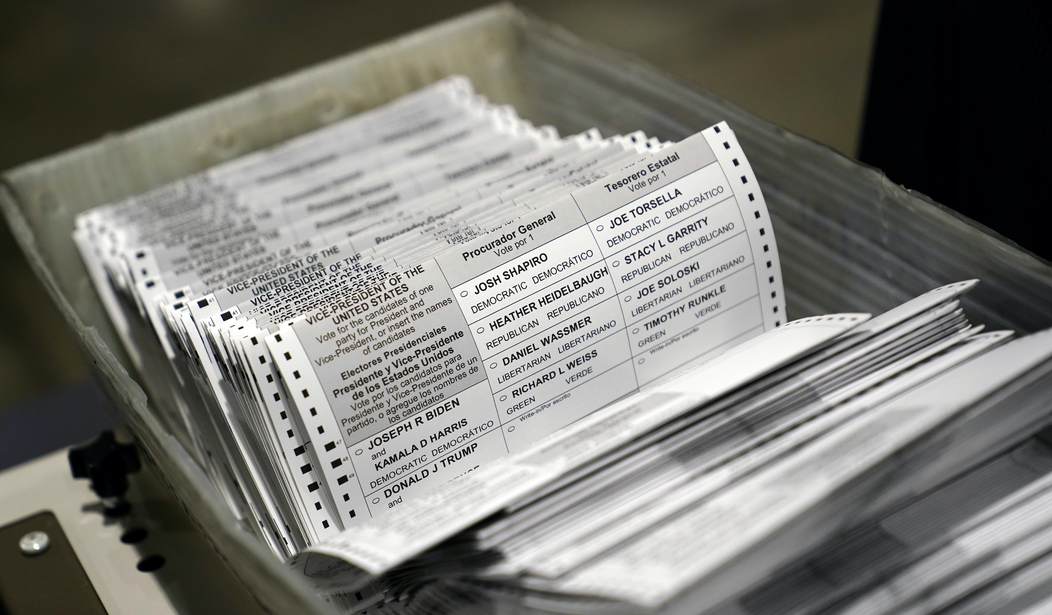The Michigan Senate Oversight Committee’s recent report on the 2020 election is a classic whitewash – a feel-good exercise designed to sweep problems under the rug so politicians can shift their attentions to other issues.
The report purports to be the by-product of an exhaustive investigation, but the committee is counting on the public – and credulous journalists – to skim through it uncritically, if they read it at all during our Pure Michigan summer.
In the section about “deceased and non-residents voting,” for instance, the report uses isolated anecdotal examples to draw broad conclusions, then used those limited findings to completely dismiss the issue of non-residents voting.
The committee also misses the point about unsolicited absentee ballots, which became an issue after Democrat Secretary of State Jocelyn Benson unilaterally decided to send absentee ballot applications to every registered voter in the state. The problem with that practice became even more apparent when voters began reporting that they had received actual ballots without returning those applications.
The report dismisses the danger by noting that “while it may not be lawful to send ballots without first receiving an application, voting this ballot is not an illegal action by a lawful voter and it is not indicative of fraudulent or illicit behavior of the voter nor of an illegitimate vote.” That’s a straw man. Nobody is claiming it’s illegal for registered voters to submit a signed ballot. The problem is that sending unsolicited ballots creates a risk that somebody other than the intended recipient gets their hands on an official ballot. Or casts it for someone with no intention of voting, and is therefore unlikely to notice that their vote had been stolen.
Recommended
The committee explicitly recognizes this danger, but inexplicably dismisses the possibility that fraudulent activity took place in the 2020 election. A month before the general election, Head of Elections Jonathan Brater swore in an affidavit that he authorized more than 74,000 ballots be sent without the statutorily required signature. The committee never took sworn testimony from Benson or Brater, and never bothered asking how many more ballots were sent out through Election Day in violation of the statute. Rules matter, statutes matter, integrity matters — even if asking the hard questions might disrupt summer vacation for a few bureaucrats.
The committee also based its conclusions on calling just 40 voters out more than 1,500 contacted by the Voter Integrity Project in the weeks following the election. That’s hardly a representative sample, and not near enough to draw any sort of definitive conclusions statistically. While it’s true that the committee did not have infinite time or resources, it also wasn’t laboring under any kind looming deadline. That the committee stopped at 40 voter contacts suggests that its desire was simply to get the process over with, and head to the beach, rather than get to the truth of the matter.
The committee peppers equally uncritical assessments throughout the rest of the report.
For instance, the committee dismisses unbalanced Absentee Voter Counting Boards because the discrepancies were allegedly not big enough to have altered the outcome of the election — even after acknowledging that the imbalances “could exist due to fraudulent activity.” This is a common rhetorical tactic, but it’s an insult to the American people, implying that we should tolerate potential election fraud because any isolated instance of potential fraud would not be enough, on its own, to change the outcome of a statewide election. But any serious fraud is unacceptable, and it’s shameful that our elected officials would shrug it off on such spurious grounds, especially when most down-ballot races were decided by just hundreds or thousands of votes. Worse, the committee doesn’t know if the amounts were “outcome determinative” because it didn’t finish the analysis.
The committee is also remarkably uncurious about the delivery of tens of thousands of absentee ballots to the TCF Center around 3:30 a.m. on November 4. The report notes that these ballots came from satellite offices, but with no chain of custody does not even bother to verify “where” or question why it would take nearly 8 hours to collect ballots from local drop boxes, process them at clerk’s offices, and then transport them downtown.
In many cases, the committee’s own suggestions to improve future elections contradict its glib dismissals of problems with the 2020 election. The committee suggests, for example, that officials should take steps to ensure proper chain of custody is documented in the future, but says nothing about the fact that chain of custody was eviscerated on Election Night.
Indeed, the report makes concerns about chain-of-custody violations sound like hysterical exaggerations, but there’s good reasons for chain of custody for each step before, during, and after the vote-counting process. The committee contends that “it is incredibly misleading and irresponsible to imply this holds any danger to the official vote counts,” but that characterization is beyond the committee’s purview. The state legislature did not create meticulous chain-of-custody requirements to arbitrarily burden election workers – it did so because to account for every ballot and protect the integrity of the vote from tampering or other mischief. Failure to follow common-sense rules to limit fraud — many in place since the 1950s — undermines confidence statewide, and not just for this election cycle, but likely long into the future.
In almost every instance, the committee’s actual findings directly or implicitly contradict its top-line conclusions. The whole report is a lesson in double-speak and a grave disservice to Michigan voters, who depend on transparency and accountability to assure them that their democracy is functioning properly, that every lawful vote counts, and that unlawful conduct does not dilute the process.
Ian Northon is a trial lawyer based in Michigan who is licensed to practice in Michigan, Florida, and Pennsylvania. He works closely with The Amistad Project of the Thomas More Society, the nation’s leading election integrity watchdog.

























Join the conversation as a VIP Member